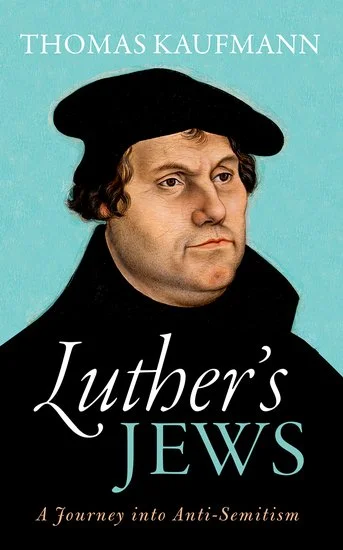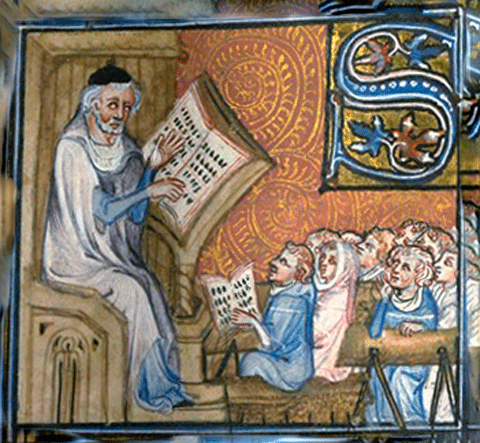I suppose the first thing to say about the book of Esther is that Martin Luther hated it. He absolutely hated it. He called Esther “less worthy of being held canonical” than any other writing of the Old Testament, and he put it on a list with II Maccabees for books that “Judaize too much and contain much pagan naughtiness. Luther may have been uniquely vocal and vitriolic on the matter, but he is far from alone among Esther’s critics, particularly her Christian ones. A robust treatment of Esther’s defects would surely include the book’s famed failure to mention the name of God or to recognize divine providence…
All tagged Luther
Review of "Martin Luther's Legacy" by Mark Ellingsen
The subject matter of this book is very dear to my heart. I have spent my academic and pastoral vocations in finding ways to make Luther relevant for our times. Mark Ellingsen’s focus in this book follows in the same path. I am grateful to Ellingsen’s scholarly and pastoral wisdom in reading Luther from a “pastoral-contextual paradigm.” Ellingsen establishes why he prefers to read Luther from a “pastoral-contextual model” rather than reading Luther as a systematic theologian. As the author notes and I agree, to read Luther as a systematic theologian does not do justice to the richness of his thought and the paradoxical character of his theology…
A Reader's Guide to Bonhoeffer Biographies
When I teach Bonhoeffer seminars at my seminary, I enjoy shocking the students early on by expressing what can only come across as a contrarian’s opinion: “You know, Bonhoeffer’s participation in the plot to kill Hitler was probably the least interesting thing about his life.” The students are generally aghast at this. Surely the romantic image of Bonhoeffer as the courageous Christian resister and martyr is too precious a treasure to diminish in this way? Well, I go on to explain, I say this because, as deeply inspiring as his courage and resistance are, for the contemporary church his theology is an even more exciting contribution…
Review of "Luther's Jews" by Thomas Kaufmann
This book is very painful to read. It is also absolutely necessary. “Luther’s attitude to the Jews, though it makes him incomprehensible, indeed unbearable, to people of our time, is very much of his time” (153). This in brief is Kaufmann’s thesis: that Luther’s anti-Judaism and premodern anti-Semitism is representative, not unique, of the sixteenth-century church—small consolation for Lutherans and Christians. At yet, at the same time, we see in Luther two polarities of thought that are so mutually opposed as to be fundamentally bewildering...
Review of "Luther's Theology of Beauty" by Mark C. Mattes
When I finished my doctoral thesis on Luther’s Theology of Music I hoped that some more capable theologian would investigate the themes I had accidentally come across: Luther’s theology as a theology of beauty and pleasure. In his Martin Luther’s Theology of Beauty, Mark C. Mattes has fulfilled my wish. His title does not indicate a distinct issue within Luther’s thinking, such as the role of art in Christian worship or more remote issues such as Luther’s artistic likings or aesthetic principles that may be traceable in his writings. Rather, Mattes’s study is an outline of Luther’s theology approached from the perspective of beauty...
Luther's Doctorate and the Start of the Reformation
On October 19, 1512, Martin Luther became a doctor of theology at the University of Wittenberg. The proceedings lasted a week. First, the chancellor of the university issued him a license to teach (licentia docendi), and Luther took a vow to uphold the teachings of the church. Upon graduation, he received the doctoral insignia, delivered an address on theology (no longer extant), and chaired his first disputation. Finally, the faculty approved his acceptance into their collegium as a fellow master. The impact the event had on Luther the theologian far outlasted the medieval ecclesiastical structure that the Reformation stretched to the breaking point...
The Unfortunate Fate of Luther in the Ibero-American World
The matter of Luther’s reception in Ibero-America is corrupted. It is corrupted because Luther was never received as a thinker, a theologian, a linguist, or a spiritual reformer, but as a heretic, an enemy, a devil, and a disease. The principal concern of those who knew anything of him was to inoculate and expunge Luther’s necrotic, contagious cancer, whose very mention could ruin the unprecedented opportunity of ruling an orthodox land free of heresy...







